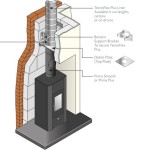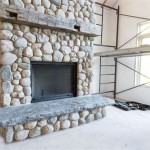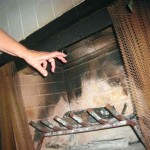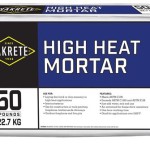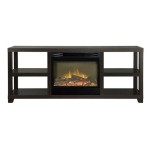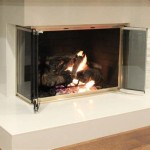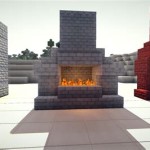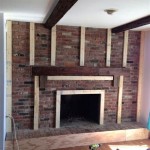Understanding Non-Direct Vent Gas Fireplaces: Essential Aspects to Consider
Non-direct vent gas fireplaces, also known as sealed combustion fireplaces, offer a convenient and efficient way to enjoy the warmth and ambiance of a fireplace without traditional venting systems. Unlike traditional fireplaces that require chimneys or flues to exhaust combustion exhaust gases, non-direct vent fireplaces use a sealed combustion chamber to burn fuel and vent gases safely and efficiently.
If you're considering installing a non-direct vent gas fireplace, it's essential to understand their unique features and requirements to ensure they meet your needs and safety standards:
Air Intake and Exhaust
Non-direct vent fireplaces have two separate systems for air intake and exhaust. The air intake system draws combustion air from outside the home, while the exhaust system vents combustion gases through a dedicated vent pipe.
Sealed Combustion Chamber
The heart of a non-direct vent fireplace is its sealed combustion chamber. This chamber is completely enclosed, preventing the escape of combustion gases into the room. The air intake and exhaust systems work together to maintain a vacuum within the combustion chamber, ensuring that all combustion gases are safely vented.
Heat Control
Non-direct vent fireplaces typically feature adjustable valves that allow you to control the heat output. This flexibility lets you adjust the fireplace to achieve the desired warmth and ambiance in your room.
Exhaust Pipe Requirements
The exhaust pipe for a non-direct vent fireplace must be installed according to manufacturer's specifications and local building codes. The pipe should be made of durable material and sized and sloped appropriately to ensure proper venting.
Fuel Options
Non-direct vent gas fireplaces can use various fuels, including natural gas and propane. It's important to choose a fireplace that is compatible with the fuel source available in your area.
Safety Features
Non-direct vent gas fireplaces are equipped with several safety features, including flame sensors, oxygen depletion sensors, and automatic shut-offs. These devices monitor the operation of the fireplace and trigger a shutdown if any unsafe conditions are detected.
Maintenance Considerations
Like any appliance, non-direct vent gas fireplaces require regular maintenance to ensure safe and efficient operation. This includes cleaning the burner, checking the spark igniter, and inspecting the exhaust system. It's recommended to have your fireplace professionally inspected and serviced annually.
Choosing a Non-Direct Vent Gas Fireplace
When choosing a non-direct vent gas fireplace, consider the following factors:
- Heating capacity: Determine the appropriate heating capacity for your room size.
- Fuel availability: Ensure that the fireplace is compatible with the fuel source available in your area.
- Safety features: Verify that the fireplace meets or exceeds industry safety standards.
- Design aesthetics: Choose a fireplace that complements your room décor and personal style.
Installing a Non-Direct Vent Gas Fireplace
Installing a non-direct vent gas fireplace requires specialized knowledge and skills. It's crucial to hire a qualified and licensed technician to ensure proper installation and prevent potential safety hazards.
By understanding the essential aspects of non-direct vent gas fireplaces, you can make an informed decision regarding their suitability for your needs and create a cozy and inviting ambiance in your home.
Vented Vs B Vent Direct Free Dixie S

Direct Vent B Gas Free S Mazzeo Stoves Fireplaces

Direct Vent Vs Natural Www Mygasfireplacerepair Com
:max_bytes(150000):strip_icc()/ventless-gas-fireplaces-4160746-hero-f9d4bdcd9bd446eb84406de306f790ba.jpg?strip=all)
How To Pick Out A Ventless Gas Fireplace

Direct Vent Vs Ventless Gas Fireplaces Woodlanddirect Com

Vented Or Non Built In Gas Fireplaces Project Small House

4 Types Of Gas Fireplace Venting Options G B Energy

Vented Or Non Built In Gas Fireplaces Project Small House

What Are The Best Ways To Vent A Gas Fireplace Zoroast

Considering A Ventless Gas Fireplace Here S What You Need To Know Bob Vila
Related Posts

